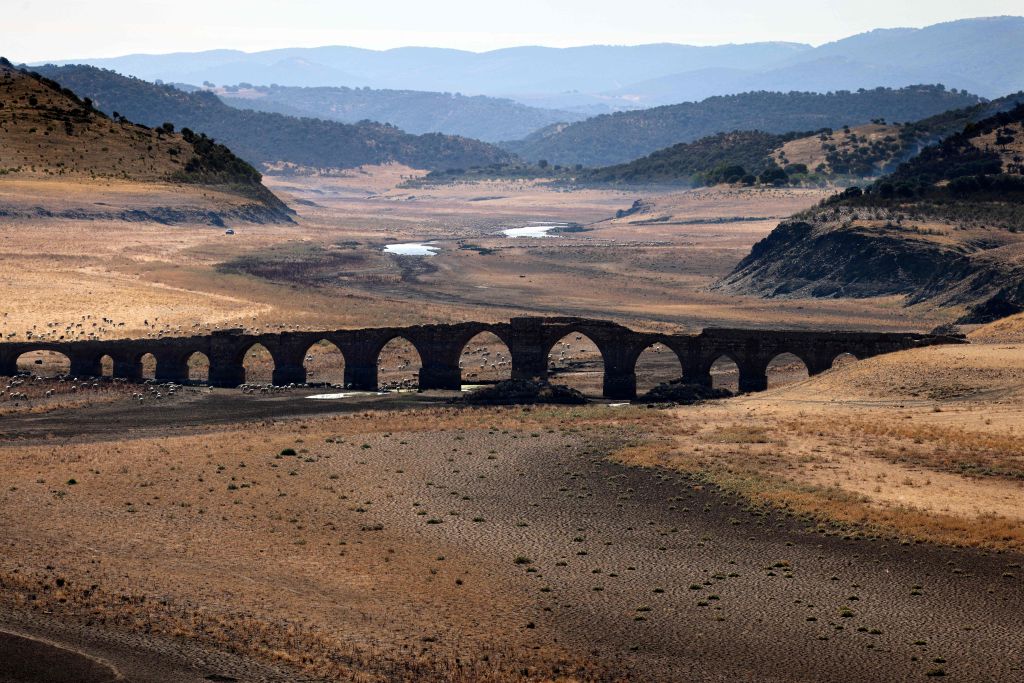
From drought in Europe to floods in Pakistan and melting polar ice, a rapidly-changing climate made 2022 a year of new extremes fueled by a relentless increase in the concentration of heat-trapping gases, according to the EU agency that tracks changes to Earth’s atmosphere.
The year ended as the world’s fifth-warmest on record, with Europe heating up faster than anywhere else, it said in new research published Tuesday. The continent experienced its second-warmest year on record and its hottest summer ever, fueling wildfires, ruining crops, hampering trade and leading to higher than normal deaths even in some of the world’s wealthiest nations.
“These events highlight that we are already experiencing the devastating consequences of our warming world,” said Samantha Burgess, deputy director of the Copernicus Climate Change Service. “Avoiding the worst consequences will require society to both urgently reduce carbon emissions and swiftly adapt to the changing climate.”
Extreme heat over the summer led to at least 20,000 excess deaths in France, Germany, Spain and the UK alone. Drought upended agricultural production, while low water levels in European rivers disrupted the transport of goods in the Rhine River, western Europe’s most important waterway, and nuclear power production in France. These climate-fueled events worsened an energy and inflation crisis that has made it harder for families to heat their homes and pay for essential goods.
The Copernicus research is the first in a series of annual reports from top climate and weather agencies set to be released this week. The scientific data is expected to match predictions made by the World Meteorological Organization last November that 2022 would be the fifth or sixth hottest year ever.
Average temperatures globally were 1.2C higher last year than re-industrial times, surpassing 2021 levels by a small margin, Copernicus said. That level of heat is particularly worrying because it happened under the second consecutive year of La Niña weather conditions, which tend to help keep temperatures low, said Freja Vamborg, senior climate scientist at Copernicus.
“If we didn’t have the underlying warming trend we wouldn’t expect record years during La Niña — it could potentially happen, but it would be unlikely,” she said. “Because we have the underlying warming trend, the variations given by La Niña and El Niño years are superimposed on this.”
During 2022, high temperatures combined with extremely low levels of rainfall to cause widespread drought in Europe as well as parts of the US, Asia and Africa. Temperatures in Europe have increased by more than twice the global average over the past three decades, according to Copernicus.
The hot weather exacerbated the gradual melting of the Earth’s ice sheets, which store vast quantities of fresh water and help cool the atmosphere.
Parts of northern and central Siberia, and of the Antarctic Peninsula recorded temperatures more than 2C above the average between 1991 and 2020, according to the report. During September, temperatures over the center of Greenland, site of the Arctic ice sheet, were 8C higher than the average of the past three decades.
The area covered by ice in the Antarctic was unusually low, with daily sea ice in February 2022 reaching its lowest extent in 44 years of satellite records. Six other months saw the Antarctic Sea ice extent at record or near record-lows.
While total collapse of the ice sheets is hundreds, or thousands of years away, scientists estimate that if all glaciers melted completely global sea levels would rise by about 70 meters (230 feet). At the moment, sea-level rise is faster than it has been in at least 3,000 years, with higher water levels eroding coasts and forcing people in low-lying towns and cities to move.
Possibly the worst disaster of the year was the flooding in Pakistan, which was linked to persisting La Niña conditions and made worse by climate change. The record-breaking rainfall that flooded about a third of Pakistan, caused widespread destruction and loss of life, with at least $16.3 billion needed to rebuild houses and farms, as well as to rehabilitate people impacted by floods, according to the latest estimates.
So far, the hottest years on record globally are 2016, 2020 and 2019 and 2017 respectively, according to Copernicus’ observations.
More Must-Reads from TIME
- Donald Trump Is TIME's 2024 Person of the Year
- Why We Chose Trump as Person of the Year
- Is Intermittent Fasting Good or Bad for You?
- The 100 Must-Read Books of 2024
- The 20 Best Christmas TV Episodes
- Column: If Optimism Feels Ridiculous Now, Try Hope
- The Future of Climate Action Is Trade Policy
- Merle Bombardieri Is Helping People Make the Baby Decision
Contact us at letters@time.com